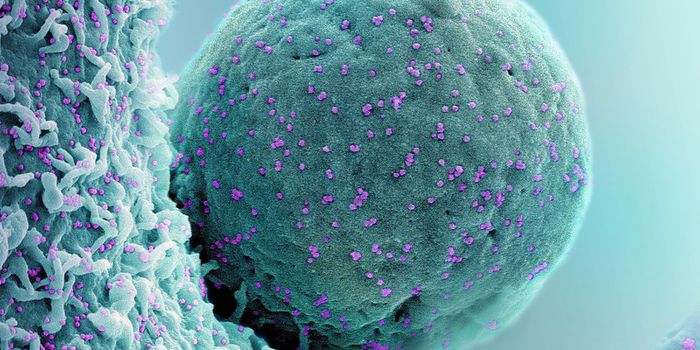Disruptions in the Infant Gut Microbiome Linked to Autism & ADHD
The trillions of microbes in the gut have a tremendous influence on human health and well-being, and gut microbes can affect the brain in a link known as the gut-brain axis. Scientists have now determined that disruptions in the gut microbiome in early life are associated with an increased risk of neurodevelopmental disorders including ADHD and autism spectrum disorder (ASD) in later life. This research analyzed the composition of the gut microbiomes of infants, and identified biomarkers that are linked to ASD, ADHD, intellectual disability, and communication disorder. The work has been reported in Cell.
"The remarkable aspect of the work is that these biomarkers are found at birth in cord blood or in the child's stool at one year of age over a decade prior to the diagnosis," noted corresponding study author Eric W Triplett, a Professor at the University of Florida.
This research is part of an effort known as ABIS (All Babies in Southeast Sweden), which is directed by Johnny Ludvigsson at Linköping University. This work has included over 16,000 children who were born between 1997 and 1999, and followed up on the participants into their twenties. In this group, there were 1,197 children (about 7.3 percent), who were diagnosed with either ASD, ADHD, intellectual disability, or communication disorder. The investigators used umbilical cord blood and blood samples from the study participants to assess some environmental and lifestyle factors that could contribute to the diagnosis of these issues later.
This showed that in the first year of life, there were already significant differences in the gut microbes of children who were eventually diagnosed with ASD or ADHD. "We've found associations with some factors that affect gut bacteria, such as antibiotic treatment during the child's first year, which is linked to an increased risk of these diseases," noted Johnny Ludvigsson, senior study author and a Senior Professor at Linköping University.
The research revealed that when children under the age of one repeatedly had ear infections, there was a greater risk of being diagnosed later with a neurodevelopmental disorder. The infection may not be causing the problem; it could be that antibiotic treatments are having a detrimental impact on the microbiome, which is causing some other issue that is increasing the likelihood of neurodevelopmental problems. The presence of Citrobacter bacteria or absence of Coprococcus bacteria were also showed to raise the risk of a future diagnosis.
"Coprococcus and Akkermansia muciniphila have potential protective effects. These bacteria were correlated with important substances in the stool, such as vitamin B and precursors to neurotransmitters which play vital roles orchestrating signaling in the brain. Overall, we saw deficits in these bacteria in children who later received a developmental neurological diagnosis," said first study author Angelica Ahrens, an Assistant Scientist at the University of Florida.
Results from an analysis of the cord blood samples suggested that certain fats like linolenic acid were more likely to be found at low levels in children who would be diagnosed with a neurodevelopmental disorder later. Linolenic acid is required for the formation of anti-inflammatory molecules such as omega-3 fatty acids.
There were also higher levels of a PFAS compound (PFAS are chemicals that have been applied to many consumer products and have recently been linked to serious health problems) in kids who got a neurodevelopmental disorder. The study confirmed that when parents smoke, kids have a higher risk of having a neurodevelopmental disorder, while breastfeeding helps reduce the incidence of such diseases.
Since this study was limited to Swedish children, we don't know if they would hold true for other populations. More research will also be needed to determine if the disruptions in the gut microbiome can cause the neurodevelopmental disorder, or if something else entirely is causing the changes like diet or antibiotics.
If the research holds true, however, it could eventually open up many new diagnostic, treatment, and prevention options for children with neurodevelopment disorders.
Sources: Linköping University, Cell




















































